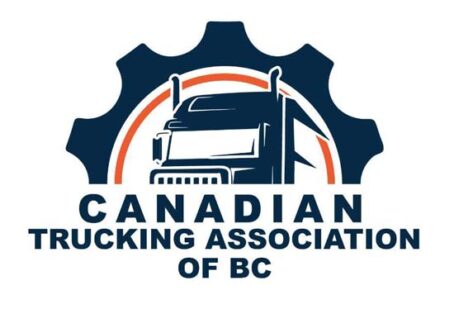Supreme Court to hear case of trucker fired after using CBD product
A truck driver, a positive drug test, a CBD product and a law designed to go after the mafia are at the center of a case the U.S. Supreme Court has decided to hear.
On Monday, the Supreme Court granted Medical Marijuana Inc.’s petition to take on its case to determine whether or not it can be sued under the Racketeer Influenced and Corrupt Organizations (RICO) Act. The company was sued by a trucker, Douglas Horn, who claimed he tested positive for THC despite the company claiming its product did not contain the active ingredient in marijuana.
Horn filed the lawsuit, which included nine claims ranging from RICO violations to false advertising, in a New York federal court in 2015. Over the course of litigation, Horn’s lawsuit was gutted to two claims: RICO violations and fraudulent inducement.
In an attempt to strip down the claims even further, Medical Marijuana Inc. is asking the high court to overturn the Second Circuit’s decision to allow RICO claims, which enable a plaintiff to recover three times the damages awarded.
CBD product leads to positive drug test
At the heart of the case is a CBD product ingested by a truck driver who tested positive for marijuana.
In 2012, Horn was a veteran over-the-road hazmat driver who had worked for his current employer for 10 years, with a total of nearly 30 years of experience as a professional driver. But in February of that year, he was involved in a crash that left him suffering from injuries.
Horn looked into alternative medicines to address those injuries. He responded to a “High Times” magazine ad from Dixie Botanicals regarding an industrial hemp product called Dixie X. The ad stated the product contained “0.00 THC.” THC, or tetrahydrocannabinol, is the main psychoactive compound in marijuana.
Rather, the product contained CBD, formally known as cannabidiol. Along with THC, CBD is one of 113 cannabinoids in marijuana. Dixie claimed that the product treated inflammation and pain.
In October 2012, Horn submitted a random drug screening as required by the U.S. Department of Transportation. A few days later, he was told that he had tested positive for a high level of THC. He subsequently was fired.
Following his termination, Horn bought some more of the Dixie X CBD oil to have a laboratory independently test the product for THC. Officials with the laboratory explained to Horn that they could not return the product to him after discovering it contained levels of THC well over the federal limit per U.S. Drug Enforcement Administration regulations and was therefore illegal.
Horn’s lawsuit
A lawsuit was filed in August 2015, jumpstarting years of litigation that would end up focusing on RICO claims.
In the original complaint, Horn made the following claims against Medical Marijuana Inc.:
- Deceptive business practices/false advertising
- RICO violation
- Fraudulent inducement
- Violations of products liability statutes
- Breach of contract
- Breach of express warranty
- Unjust enrichment
- Negligence
- Negligent infliction of emotional harm
In April 2019, Horn’s attorneys decided to drop the breach of contract, breach of express warranty and unjust enrichment claims. The district judge granted Medical Marijuana Inc.’s motion to remove the deceptive business practices/false advertising, products liability, negligence and negligent infliction of emotional distress claims from the suit, leaving only the RICO and fraudulent inducement claims.
In 2021, the district court dismissed the RICO claims. However, that decision was reversed by the Second Circuit Court of Appeals last August, breathing new life into Horn’s lawsuit. That decision is what the Supreme Court will be deciding on.
Nuances in RICO’s injury claims
Although RICO claims typically deal with criminal charges, civil claims are allowed to recover injuries to business or property. However, there is a split among the federal appellate courts regarding how that is applied.
The district court dismissed the RICO claims by finding Horn’s lost earnings flowed from a personal injury, i.e. “an unconsented bodily invasion by THC.” Consequently, the lost earnings were not considered an injury to business or property.
However, the Second Circuit found that “business” includes “employment,” and therefore, Horn suffered an injury in his business, full stop. The appellate panel rejected the district court’s ruling – which was based on other circuit courts’ decisions – that bars RICO claims pertaining to a loss that “flows from, or is derivative of,” a preceding personal injury.
The Sixth, Seventh and Eleventh Circuits have held that the civil RICO “business or property” requirement implicitly excludes personal injury claims. In order to maintain that exclusion, injuries to business that flow from personal injuries must also be excluded. Otherwise, a plaintiff could just recast a personal injury as a financial loss of business in order to invoke a civil RICO claim and pursue damages threefold.
The Second Circuit argued that the preceding personal injury limitation undermines the intent of the RICO Act. The court’s opinion used a loan shark as an example. Based on the district court’s reasoning, business injuries could not be recovered if they stemmed from personal injuries that were the result of “the murder of a business owner who resists paying a demand for protection money.” That logic followed a Ninth Circuit ruling on civil RICO claims.
Essentially, the Supreme Court will settle a 3-2 circuit split that will determine whether the nature or the source of injuries to business is the controlling factor in civil RICO claims. LL









